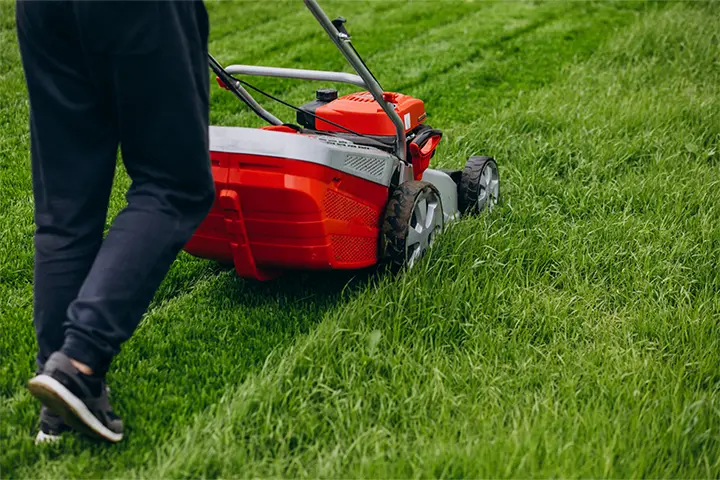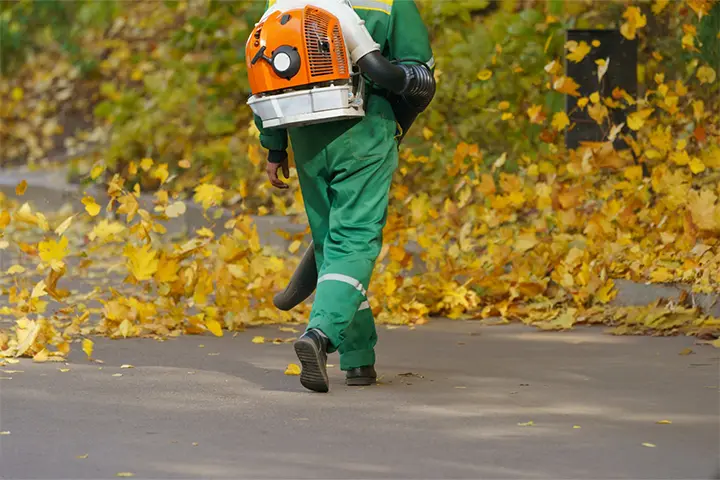Do you love vegetable gardens? Due to the increasing population, organic foods have become scarce. Many companies use fertilizers and other chemicals to speed up vegetable growth. People prefer to grow their own vegetables even if they have a small place in their garden or yard.
A vegetable garden is an incredible idea. This way, your family gets fresh food and saves money. Don’t forget that a garden also needs daily care. Neglecting it means the plants become weak and die. Vegetables need regular attention to grow strong and healthy. These 15 vegetable garden maintenance tips will help you!
1. Select the Best Spot
Location is the first step if you don’t already have the garden. Vegetables need sunlight for strong growth, so you must find a place with at least six hours of sunlight. Avoid shady spots under tall trees. Vegetables grow faster when light reaches every plant. Sunlight is the food for your vegetables. Good light will protect against plant diseases.
2. Test Your Soil
Healthy soil supports the healthy growth of vegetables. If the soil is inadequate, the plants can dry and wilt. It will cause frustration. Sometimes, poor soil makes vegetables small and weak. The market has multiple soil testing kits. Use these kits to check for pH, minerals, and overall soil balance.
Get help from professionals if the soil is not good enough. They will add compost to improve the texture. It gives important nutrients. Rich soil keeps vegetables green and strong.
3. Water Correctly and Regularly
Water is life for every single plant, but don’t flood the garden with water. Anything in excess is harmful. Too much water causes weak roots and rot. Too little water makes plants dry and weak.
Water the soil when it feels dry. Morning watering is best for vegetable gardens. Leaves dry quickly and stay safe from disease. Water deeply so roots grow stronger.
4. Use Mulch for Soil Protection
Mulch acts as protection for your soil. It maintains the soil cool on hot days. It holds water, so the soil stays moist for longer. Mulch will stop weeds from spreading fast. Use grass clippings, straw, or dry leaves.
Spread the mulch evenly around plant bases. You should not cover stems, or they may rot. Mulch will keep the soil rich for a longer time.
5. Remove Weeds Quickly
Weeds can destroy your vegetable garden. They will take away sunlight, water, and soil space, and this hurts the vegetables. Weeds grow fast and spread without any care.
Always check your garden for small weeds and use a spray to keep the garden clean. Clean beds mean the vegetables will grow better.
6. Give Every Plant Enough Space
Crowded plants fight for water, food, and sunlight. In such conditions, the diseases also spread faster. If a disease occurs, the disease will destroy all your plants.
Read the spacing guide on seed packets. Give some space for air to move freely. Good spacing makes plants healthier and more productive. A spacious garden is easier to manage, too.
7. Change Crops
It’s not good to grow the same crop every year. It makes the soil weak, and it will lose nutrients. Pests also attack more when you grow the same crops. Rotate different crops to keep the soil healthy.
If you have planted beans, next year you can replace them with tomatoes. Beans add nitrogen that is good for the soil. Rotation keeps the garden soil strong and fertile, so your vegetables become healthier.
8. Watch Out for Garden Bugs
Bugs can destroy plants in a few days. Pick small bugs with your hands if possible. You can utilize soap water spray to tackle the bigger infestations. It’s recommended to avoid powerful chemicals as they can also harm the garden insects. Ladybugs, bees, and butterflies are beneficial insects that should be present in gardens.
9. Add Compost to the Soil
Compost is natural food for all garden plants. It makes soil rich with vitamins and minerals. It’s possible to make compost at home from scraps. Use some old fruit peels or vegetable waste, and add them to the soil every few weeks.
This simple trick will improve texture, and it makes the soil light and airy. Compost will allow the soil to hold water. The vegetables in a compost-rich garden taste delicious.
10. Support Tall Plants With Stakes
Some vegetables grow tall and need strong support. For example, tomatoes and cucumbers can fall without any support. They need cages to hold them. Support keeps plants off the wet ground.
This will improve airflow and eliminate the chance of disease. Supported plants also get more sunlight on their leaves. Harvesting is easier when vegetables are upright and clean. Always tie plants gently, as you should not cause stem damage.
11. Harvest at the Right Time
Don’t harvest the vegetables if they are not grown yet. They will not taste good. Unripe vegetables may cause stomach issues. Vegetables will only taste delicious if you harvest them at the best time. Harvest them when they are fully grown.
12. Get Some Tools
Dirty tools can spread problems to all plants. If one plant has a disease, it will also affect other plants due to the same tools. You should always wash shovels and pruners. Dry them well to prevent rust or damage.
Store the tools in a dry place away from children. If the tools are clean, they will give better results. Plus, clean tools last many years. They also decrease the risk of garden diseases. Look after the garden tools as per the best practices for gardening.
13. Prepare for Changing Weather
Weather changes can harm plants very quickly. Frost burns tender leaves during cold spring nights. Strong heat will dry up the soil and weaken the roots. Too much rain means the vegetables will drown.
Check the weather forecasts before gardening outside. Cover plants with cloth if the nights are freezing. Give more water to plants during hot days to prevent drying. Seasonal vegetable garden maintenance keeps your garden safe and steady.
14. Plant Vegetables You Eat
Grow vegetables that your family actually eats. If you grow vegetables that you don’t eat, it’ll be a waste of your effort. You will not harvest them, and they will still occupy the space. Plants need time to grow, so make a wise decision. Popular easy vegetables are tomatoes, carrots, and lettuce.
15. Keep Learning Every New Season
Gardening teaches something new every single season. The weather has unexpected changes, so you have to be careful. Every place has different soil, so you cannot follow a defined strategy. Take some time to learn how to maintain a vegetable garden. You can also talk with neighbors to see what they do.
Final Words!
A vegetable garden brings fresh food for your family. It will give savings and peace as well. Don’t forget that it needs steady care with time and effort. Follow these easy vegetable gardening tips to keep the plants strong.
If you need extra help, TG’s Landscaping provides professional garden maintenance. We maintain gardens and landscapes to keep them healthy and yield more. Our experts use the right equipment, fertilizers, and techniques to ensure a lush, healthy garden. Call us to get a FREE quote.
Frequently Asked Questions
1. When should I water my garden?
It’s recommended to water your garden early in the morning. This will keep the garden healthy.
2. How to control the garden bugs?
You can remove the bugs or insects using your hand or use any store-bought spray.
3. How much sunlight do vegetables need?
Every day, vegetables should get six hours of sunlight.


